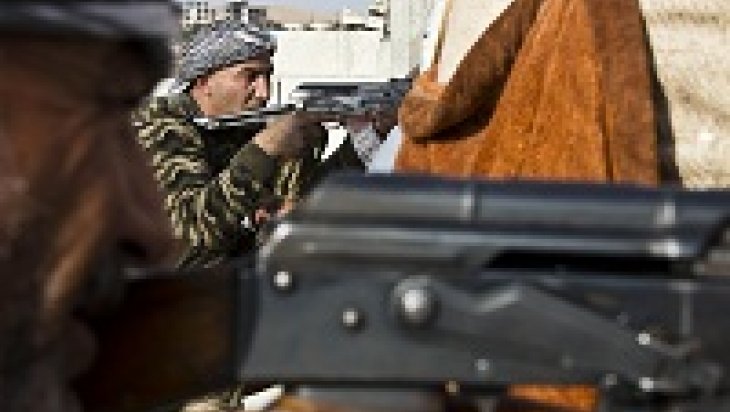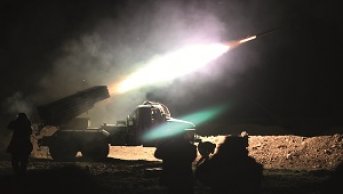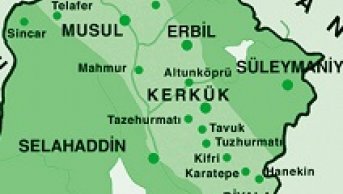The Influence of ISIS in PKK-KDP Relations

The ISIS assault against the Kurdish forces in the north of Iraq and Syria affects closely the course of relations among the Kurdish political parties and factions. While the political groups are sometimes pushed towards either cooperation or competition, it is widely observed that they do not join forces in a national struggle against ISIS, their common foe. Rather the disagreements among them are getting clearer.
In Syria, PKK’s Syria affiliate PYD (Democratic Union Party) carries out the fight against ISIS, while in Iraq, the anti-ISIS struggle is led by the KDP (Kurdistan Democratic Party) of the Kurdish Regional Government. As KDP seeks to expand its influence in Rojava without losing its political and military power in the KRG, PKK yearns for reinforcing itself as an alternative actor in the KRG while at the same time protecting its dominance in Rojava. Both parties support each other militarily and logistically when they cannot push back ISIS attacks on their own as a result of Kurdish nationalism and public opinion pressure. In other respects, they both act carefully on this issue for ensuring that the support will be limited and temporary, their territorial authority will not be challenged and the other actor will not be promoted in the Kurdish public opinion.
Disagreements Emerged in the Fight against ISIS
The longstanding disagreements between PKK and KDP in the issues of Kurdish national leadership, fighting methods and political stances have been further aggravated and the mutual trust between the two actors has been eroded during their temporary cooperation against ISIS. A new period started for the PKK-KDP relations when ISIS entered Sinjar in June 2014 and the Kobani canton of Rojava in September 2014.
The Sinjar Front
After fleeing from the ISIS attacks in Sinjar and Mahmur, KDP peshmerga forces managed to fend off the ISIS threat thanks to the military aid by PKK and PYD. PKK gained prestige in the KRG for its support for preventing the ISIS invasion in Sinjar, which is an Ezidi town and in Mahmur, which is populated by Kurds from Turkey. As its well-trained and fully-equipped peshmerga fled the battlefield, KDP’s authority in the KRG has been shattered and the KRG opposition’s sympathy for PKK has surged.
PKK and PYD rescued a great number of Kurds and Ezidis from ISIS through the security corridor they established while Sinjar and Mahmur was still under invasion. Meanwhile, Mesud Barzani, President of the KRG and the KDP, punished the commanders that fled the battlefield and ensured that peshmergaconducted major operations against ISIS in Sinjar. As Barzani sought to amend its shattered authority by making a victory speech in the recently liberated Sinjar Mountain, PKK started arming the Ezidis in Sinjar and formed the Defense Forces of Sinjar. PKK, aiming to maintain its recently acquired legitimacy, claimed that the KRG does not protect the Ezidis and launched initiatives to form local administration committees. KDP opposed this move claiming that PKK’s initiatives establish cantons in Sinjar similar to those in Rojava will cause fratricide in the KRG. Insisting that PKK has to with-draw from Sinjar as they have withdrawn from Kobani, KDP considers the self-government initiatives in Sinjar ‘illegal’ and perceives these as a challenge to its rule.
The Kobani Front
Facing difficulties in fending off the ISIS assault in Kobani on its own, PYD, accepted the temporary support of the KDP peshmerga to defeat the ISIS threat after a long time opposing the presence of Peshmerga in its own territory. The Kobani resistance had a historic character for Kurds. Barzani, who had decided to reinforce PYD against ISIS, has gained popularity with his military power and diplomatic skill that is involved in negotiations with Turkey. Bar-zani’s support, on the one hand, demonstrated the weakness of PKK and PYD to provide security in Rojava, and on the other softened the PKK’s attitude towards KDP. Taking notice of his recently gained room for maneuver, Barzani sought to dismantle PKK’s monist policies in Rojava with Duhok Agreement. This agreement forces PYD to share its political and military authority with pro-KDP ENKS (Syrian Kurdish National Council) and TEV-DEM (Democratic Popular Movement) and to form a joint council for governing Rojava. Duhok agreement raised expectations that PYD will relinquish its grip on the administration of Rojava. KDP circles claimed that the agreement is related to KDP’s support for Kobani. Meanwhile, PYD considered the Duhok process the Kurdish unification against ISIS and highlighted the importance of PKK/PYD support in Sinjar. Yet the agreement did not come into force due to the tensions between PKK and KDP like the Kurdish National Congress, which cannot convene since 2012.
PKK and KDP amended their relations after their joint fight against ISIS in Sinjar in June 2014 and KDP’s support for PYD in Kobani in September 2014. The relations reached a climax in October 2014 with the Duhok Agreement. Though in January 2015, the process halted for the PKK initiatives to form autonomy for Ezidis in Sinjar, which KDP perceived as a threat to its authority.
The Difference in Faith Becomes Apparent
In addition to their traditional competition, the difference in faith has also become apparent for PKK and KDP in their fight against ISIS. While KDP is known for its Sunni-conservative base, PKK was founded on marginal leftist and Marxist ideology. PKK seeks to label KDP as pro-ISIS claiming that KDP belongs to the Sunnis axis in the Middle East, while at the same time benefiting from its ‘secular’ image of a ‘tactical ally’ of the United States and Europe. Kongra-Gel Co-President Remzi Kartal, who is one of the top PKK leaders in Europe, stated that people from the KRG administration take place in the Sunni axis against the Shiite axis represented by Iran and KDP is aware of the Sunni plans to design the region through ISIS. KCK Executive Council member Mustafa Karasu reiterates that “Iraqi Sunnis, KDP and Turkey are allies. ISIS benefited from this alliance when it invaded Mosul”. PKK’s claims that the Peshmerga abandoned Ezidis (non-believers according to them to death) are closely related to this rhetoric.
PKK echoes its allegations of AK Party’s support for ISIS for blaming KDP as well, which has close diplomatic and faith-related relations with AK Party. PKK seeks to utilize its anti-AK Party and anti-KDP claims for reinforcing its anti-ISIS image in the West. KDP’s efforts against ISIS in both Kobani and KRG, which is the biggest victim of ISIS, despite its vulnerable economy and its invitation to the international coalition, invalidate PKK’s claims.
Regional Equation
KDP was the only prominent Kurdish organization up to now, which had military and diplomatic relations with the US and Western states. Now that PKK has gained power through its military acquisitions in its fight against ISIS, it has a substantial advantage in its competition with KDP.
It is beyond any doubt that increasing PKK-KDP competition affects the political equation within the KRG. ‘Secular’ PKK joins forces with the opposition in KRG comprising left-leaning PUK (Patriotic Union of Kurdistan) and Gorran (Change) Movement just like it develops close relations with the Assad regime and its biggest supporter Iran against ISIS and the Syrian opposition.
In other respects, Iran’s close relations with PKK in Syria and support for the KRG opposition pushes KDP closer to Turkey. Turkey’s entry into the anti-ISIS coalition will further enhance Turkey-KDP relations. That is because KDP believes that Turkey’s entry in the coalition will prevent the invasion of the KRG by ISIS and also end the uncompromising attitude of PYD with the ISIS-free zone that is to be established in Rojava. Yet, PKK believes that Turkey’s entry is intended to prevent the PYD advance in Rojava and a concession to the US for bombing Kandil. Recent situation shows that the rift between PKK’s and KDP’s regional policies in both Rojava and KRG is getting wider.
Ultimately, both actors engage in a temporary cooperation against ISIS and utilize their gains for gaining prominence in their traditional competition and establish room for maneuver in political and military sense. It further contributes to the tension in their relations and escalates the competition caused by their faith-related and political differences.
This article was published in Ortadoğu Analiz journal with the title of "The Influence of ISIS in PKK-KDP Relations”









